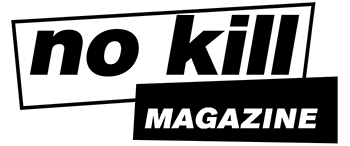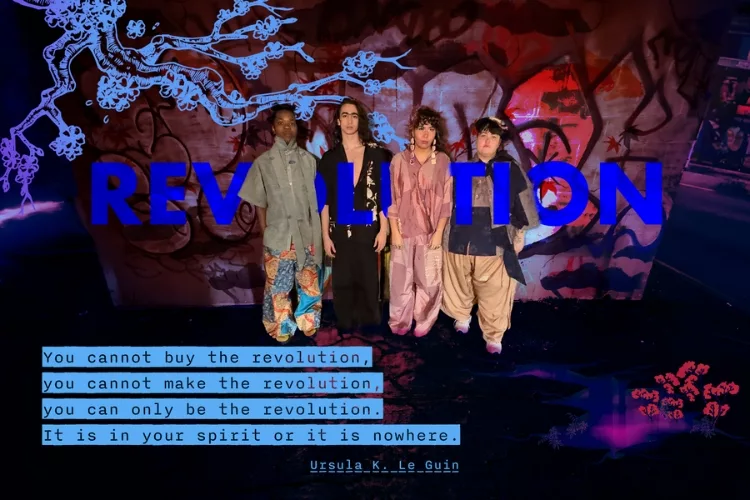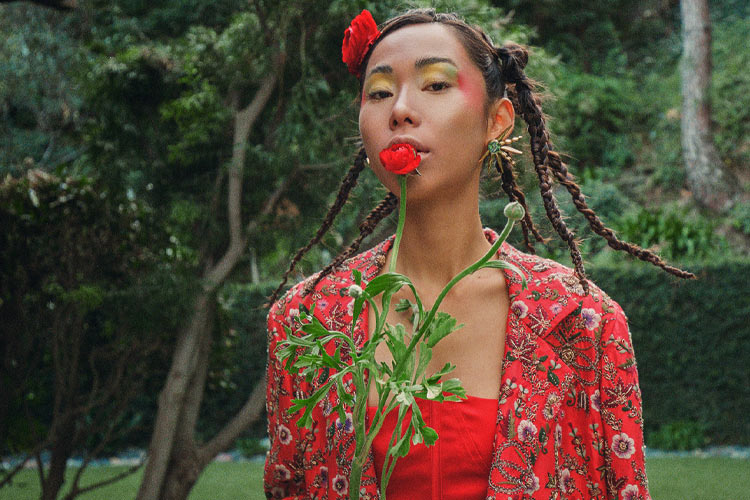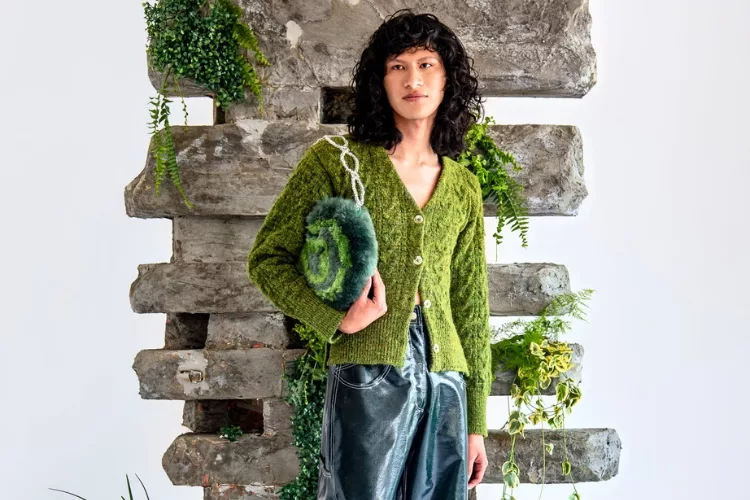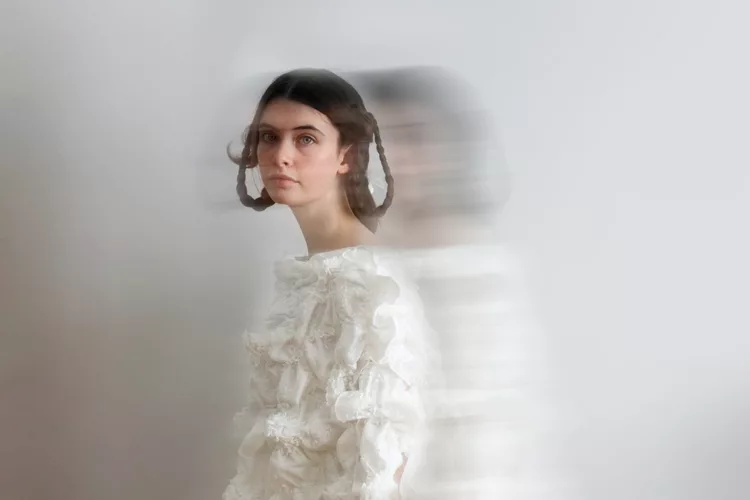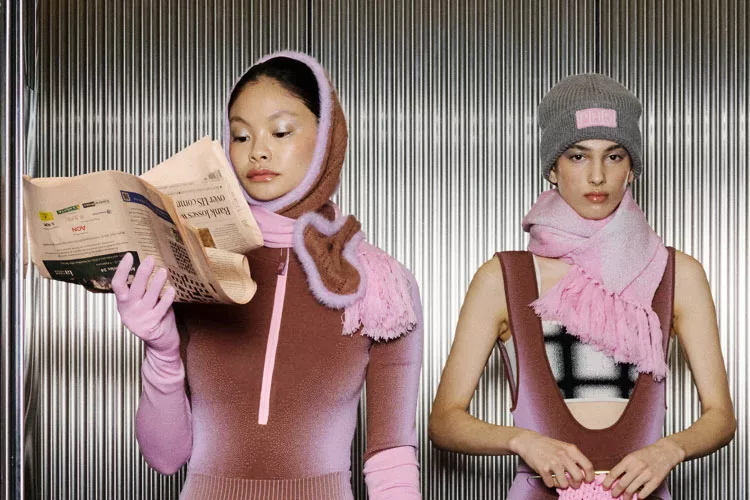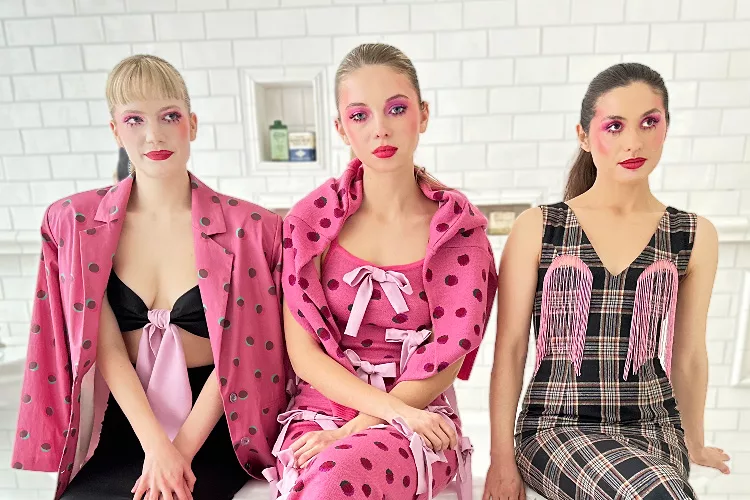While most fashion lovers know of the big four fashion weeks (New York, London, Paris and Milan) there are several more across the globe –and it goes without saying that they’re not all so great. The one in Lagos, though is definitely on par with our favorites. Hosted in West Africa’s biggest fashion capital and now in its 12th year, the showcase attracted 3,900 guests, more than double the number of last year, at around 1,800. The five-day event plays an instrumental role in attracting international consumers and financial support to African fashion brands.
“There’s a need for a consistent platform like Lagos Fashion Week to not only consistently showcase the collections,” shared founder of Lagos Fashion Week, Omoyemi Akerele, “but to be able to shift the conversation from fashion as entertainment to fashion as a business, and provide useful tools for commerce and creativity across the continent.”
Below are some we’re watching.
Tolu Coker
Tolu Coker’s bespoke brand is a dynamic world of contemporary art and culture. Tolu creates clothes that are bold, fun, and eclectic. Each piece is weaved from not one, but many great Black moments in time. A graduate of Central Saint Martins’ BA in fashion design and textile print, Coker launched her eponymous fashion label in 2018. Since then she has used it as a vehicle for creating equity and social change. Her work extends far beyond just clothes. Her fashion films and documentaries are commissioned by major brands and fashion publications. Though only 26, Tolu Coker has recently been nominated as an honoree of the Forbes Europe 30 under 30 list.
Working with deadstock denim is Tolu’s forte. She deconstructs denim to create fabulous head-to-toe houndstooth suits inspired by zoot suits from the ’40s. And jacquard houndstooth bustier suits printed in her own art. The largely genderless collection is also backed by planet positive practices. These include manufacturing locally, ensuring fair wages are paid and upcycling waste materials where possible.
Lilabare
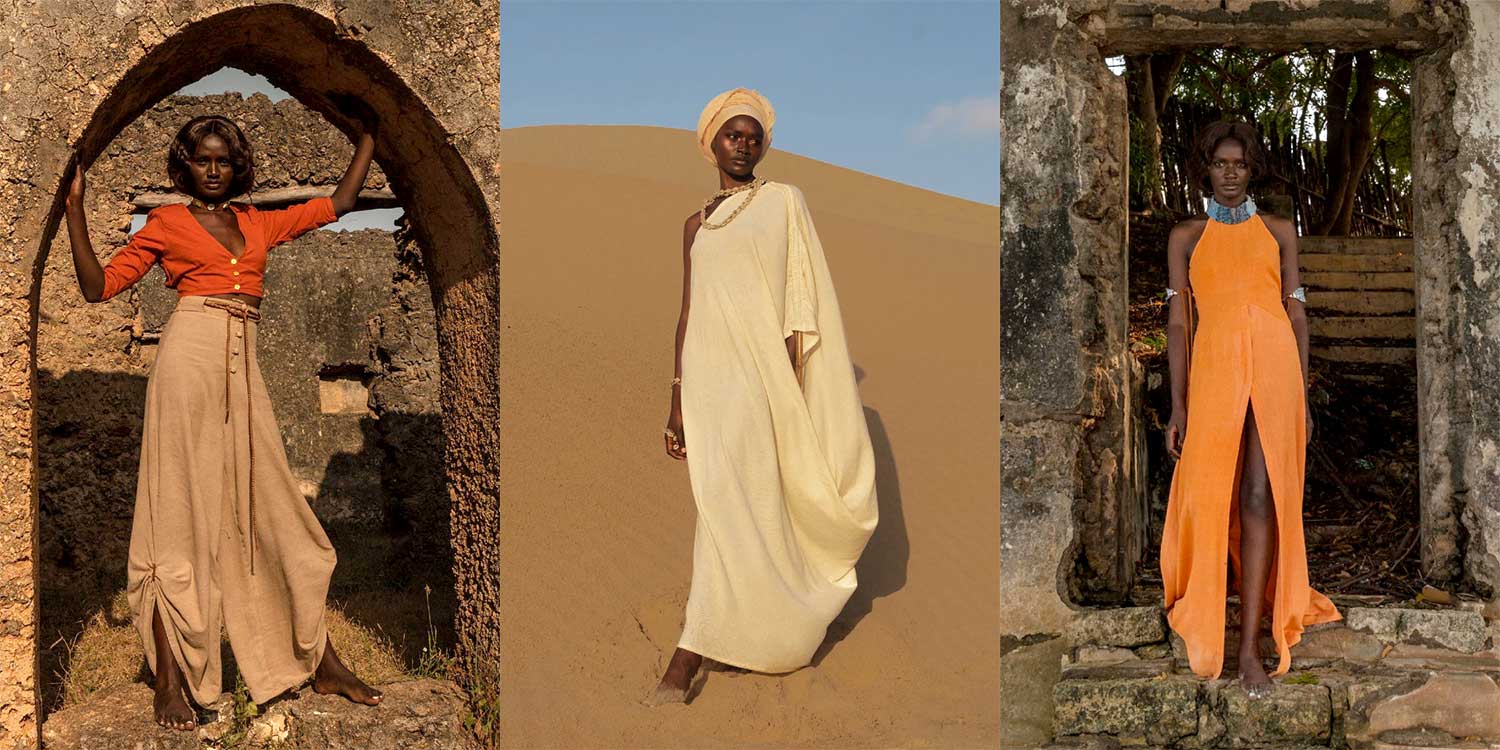
This collection is inspired by the Buddhist concept of Samsara, which is often defined as the endless cycle of birth, death, and rebirth a never-ending circle. Lilabare is where you will find “transeasonal and transformable styles designed to be your future heirlooms”. Founded by Ria Ana Sejpal, the Kenya-based brand focuses on elevated comfort, featuring safari-inspired, all-cotton clothes and travel essentials. Their multi-way wrap top, warm-toned floor-length dresses and skirts are apt for both your next summer getaway and your next time out with the girls.
Not only are all of the designs timeless essentials, but they are also loose-fitting with an elegant touch. This means they will always fit your body perfectly at different phases of your life, and potentially that of whomever you pass them down to. Each piece is crafted with care with natural & local materials, without carbon or chemicals. For a reasonable price, you can get clothes made from botanical dyed handloom cotton grown in East Africa.
Maliko
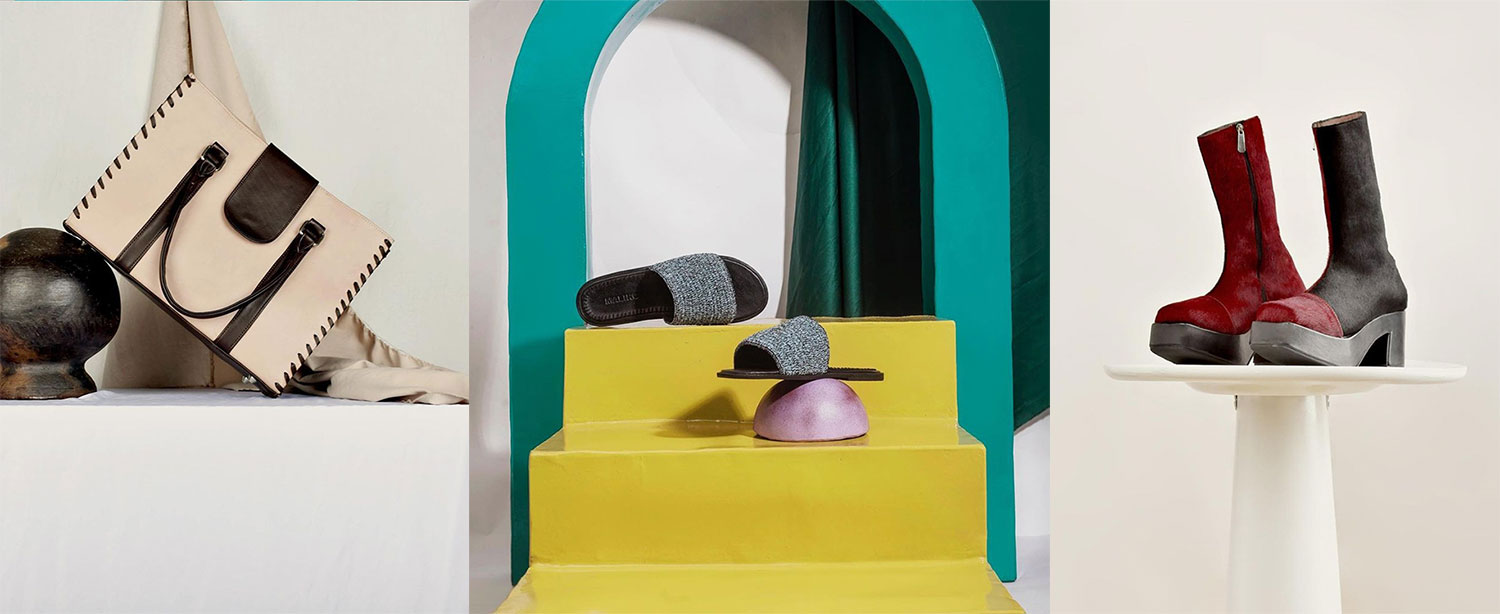
Looking for high-quality artisanal shoes? Enter Maliko. Founded by Ebuka Omaliko, the brand is known for its meticulously crafted shoes and accessories. Here, you will find modern everyday style, re-energized by the upbeat pace of Lagos urban lifestyle.
Maliko exclusively engages local artisans using traditionally trained craftsmen. The brand takes pride in being socially responsible and a solid advocate for sustainability by slowly handcrafting its pieces and encouraging zero waste. Each pair of sandals, slides, or bag is created using recycling and upcycling techniques. Omaliko also creates employment opportunities for local artisans, and offers training for young people in leathercraft.
Lagos Space Programme
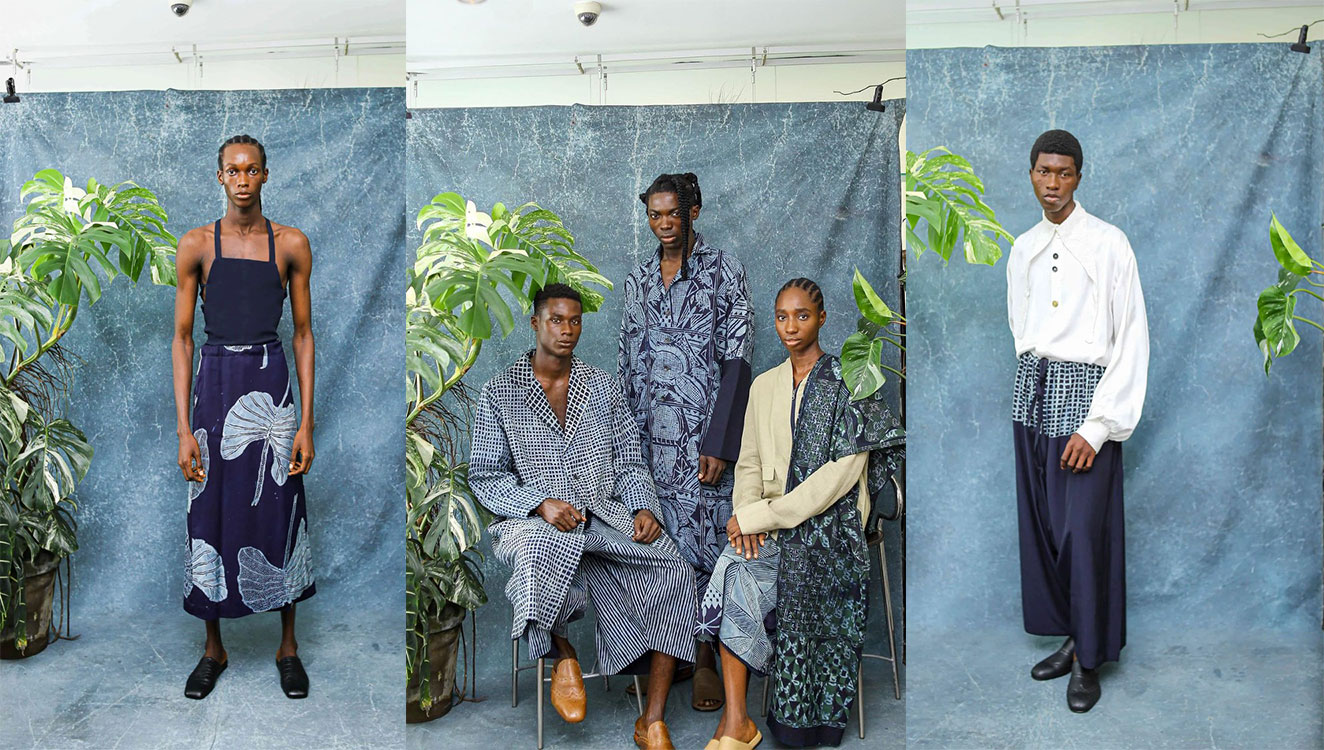
Lagos Space Programme is a non-binary, luxury design project inspired by a blend of African and Japanese typologies. Founded in 2014 by Nigerian designer Adeju Thompson, the brand has a focus on craftsmanship and a dedication to slow fashion.
Adeju took an unconventional approach to appraising African fashion. Instead of turning to the continent’s past for inspiration, he leans towards exploring African futures –hence the name of the brand. This disruption in design approach, coupled with the quality of craftsmanship, put Adeju Thompson on the shortlist of the prestigious LVMH Prize for Young Fashion Designers in 2021.
All LSP pieces are one-offs, and the production is made in Africa exclusively. Under Adeju’s vision, LSP is more than just a brand, it is an ethical movement with a focus on craft.
Nkwo
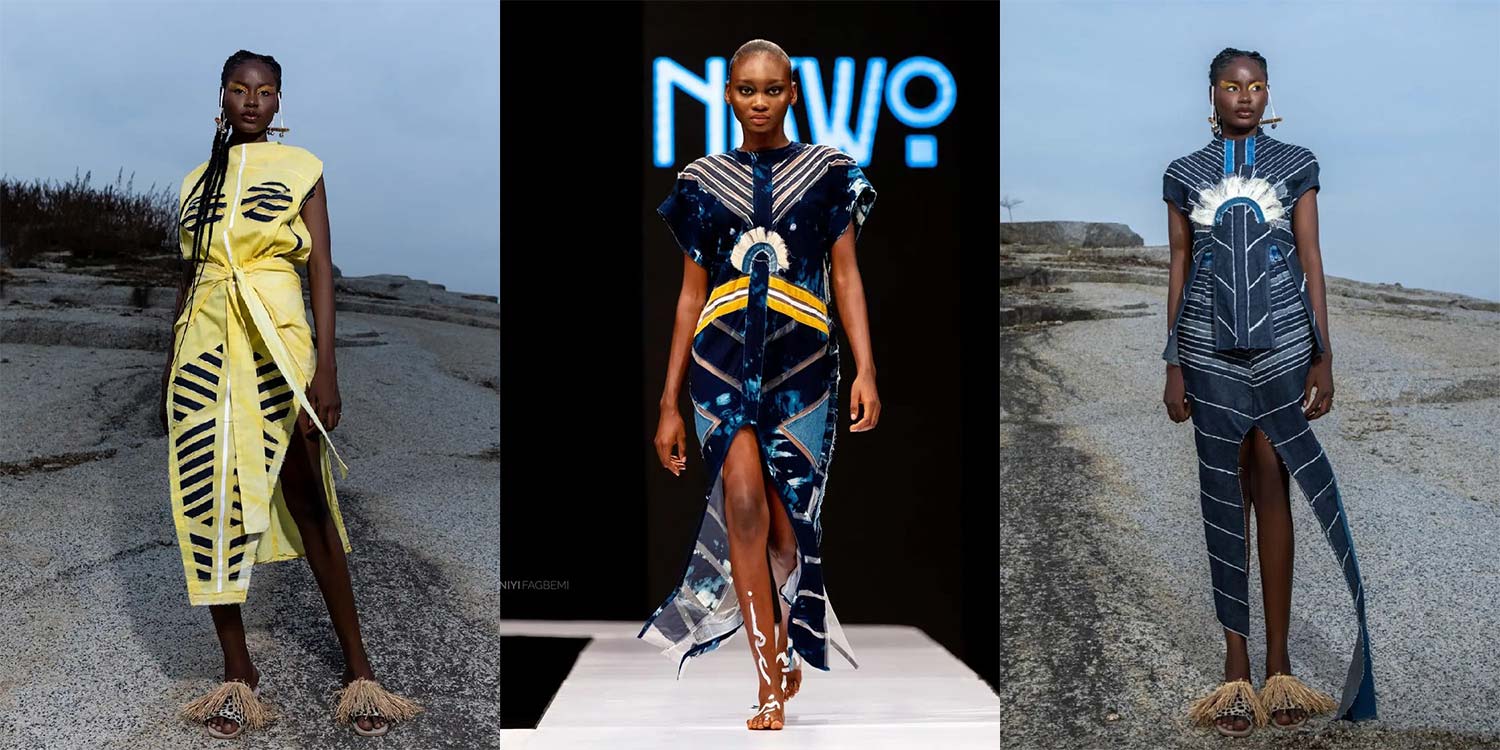
Winner of the CNMI Sustainable Fashion Awards for Emerging Designer, Nigerian designer Onwuka has a true Afro creative language. Her brand, Nkwo, features reconstructed tie dyed dresses, and denim with exotic elaborate embellishment in shades of indigo and bright yellow. Through her work, Onwuka celebrates the powerful, warrior-like spirit of the nomadic Africans who wander the deserts and great plains.
Onwuka’s artisanal and limited-edition pieces were made from upcycled denim, and other textile wastes like end-of-line fabrics and cutting table waste, all of which are locally sourced from Nigeria. Working closely with artisans and local makers, Onwuka also aims to harness the capabilities of technology (both old and new) as a sustainable form of preserving traditional craft skills.
Cute-Saint
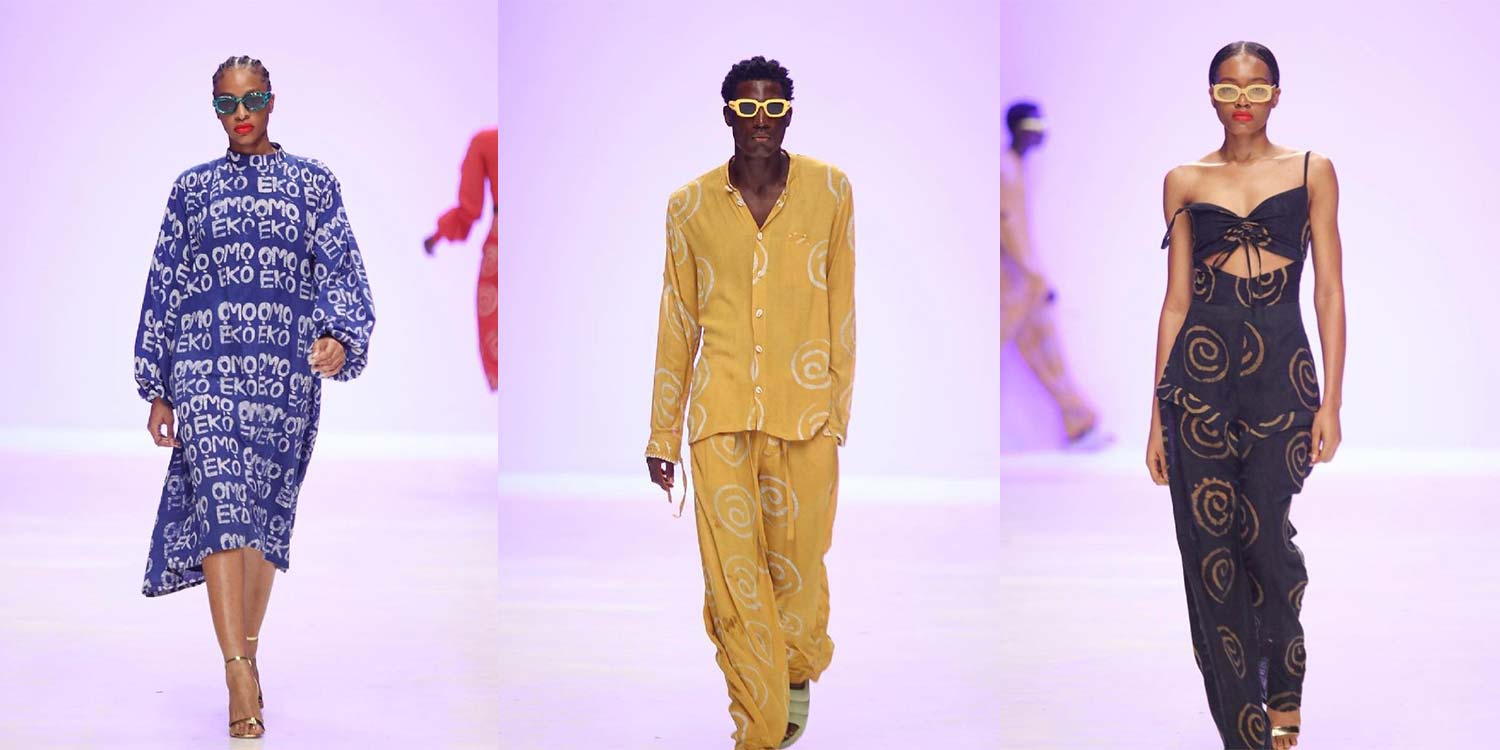
Fashion Editor and Celebrity Fashion Stylist, Muftau Femi Ajose created Cute-Saint as his way to tell the much ignored stories and narratives of Africa through colors, textures, shapes, and lines. The brand features authentic edgy designs produced with high level craftsmanship, bridging the gap between luxury and affordability.
Each piece is crafted with locally produced organic fabrics and batiks made by local artisans who have mastered their craft. To minimize waste from excess productions, each piece is made-to-order.
Orange Culture
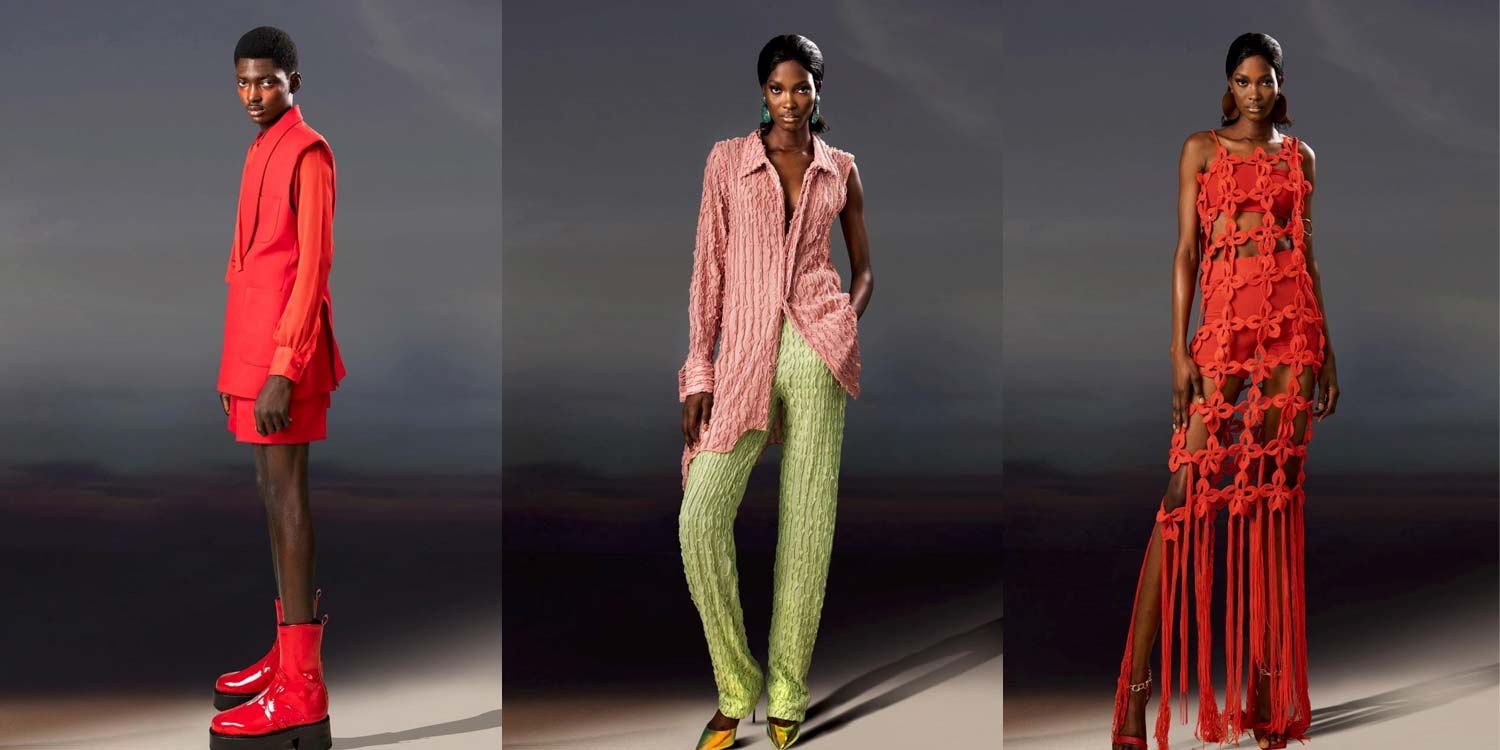
One of the most internationally recognized brands of Africa, Orange Culture has long been the destination for contemporary urban street wear. Just like the name, the clothes are anything but basic: they are a strong reflection of the lively and potent Nigerian culture. Using Nigerian-inspired pattern fabrics as his canvas, Adebayo Okelawal playfully merges provocative cuts with universal silhouettes. A pioneer in industry collaboration, Orange Culture opened doors for brave and creative menswear. Nowadays, the brand takes on a more androgynous approach to its designs, celebrating the women of Orange Culture who have a story to tell. The label was selected in 2015 for the first ever LVMH prize, and is available on Farfetch, Browns and more.
All pieces are manufactured in Lagos, from ethically-sourced fabrics made by local Nigerian weavers. Orange Culture supports their local community by taking their staff through rigorous training processes and offering them the opportunity to attend skill acquisition initiatives.
Rethread
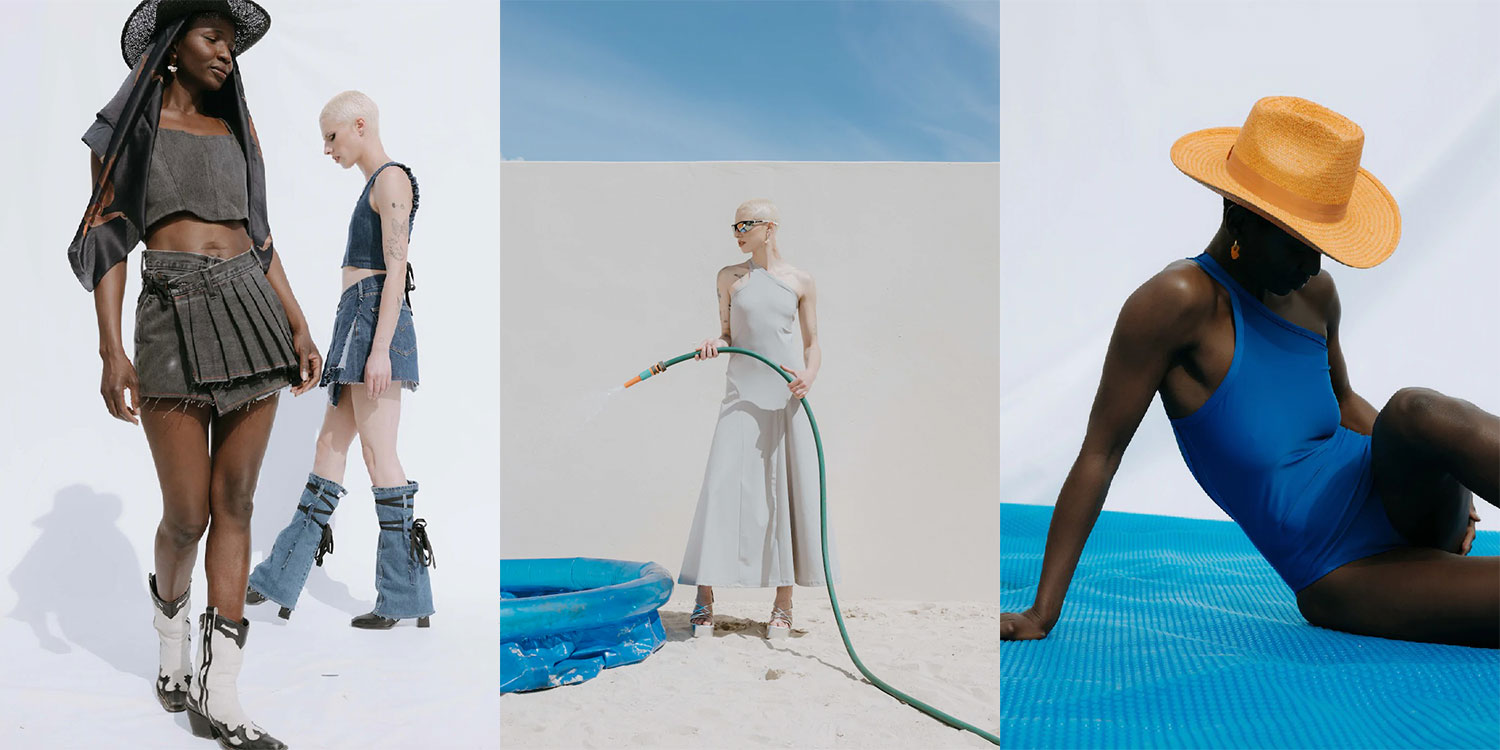
Rethread is the only brand in our list that focuses exclusively on upcycled secondhand pieces. They develop innovative ways to save textile waste from the landfill by using what is already in circulation. The results are Instagram-worthy sets, cropped and sheer tops, far from what you would expect from secondhand clothes. Taking into account the amount of existing textile waste in Africa, we hope to see more brands following Rethread’s efficient and responsible business model.
Rethread is extremely transparent about how it creates its products. They source existing garments from thrift, and charity stores, then redesign them to give them a new life. All of the clothes are produced locally in small quantities. Rethread supports local craftsmanship.
Abigail Ajobi
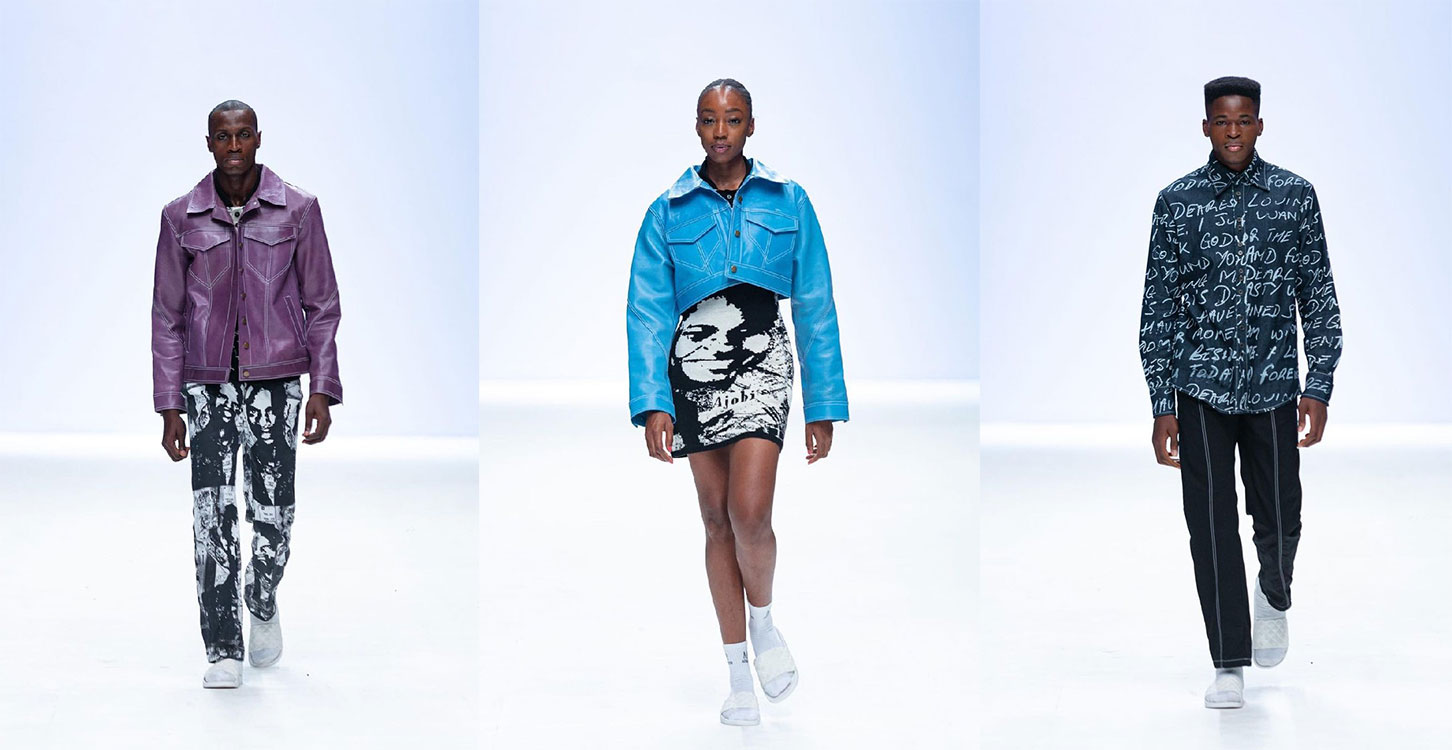
If you are a minimalist looking for ways to compress your closet, check out Abigail Ajobi. The brand features luxury streetwear with a modern athletic twist. They are known for their print-based designs, as well as their signature ‘convertible clothing’. Many of Abigail’s pieces can be worn in multiple ways, from shorts to full length trousers. Not only can you be more creative in styling them, you can also make the most out of the clothes’ lifetime.
Community empowerment drives the work of Abigail. Each collection is created based on the theme of a social issue. After each collection, she takes part of the total profit to give back to a charity related to that specific issue. All of the clothes are made from limited quantities from deadstock fabrics.
The diverse and talented cohort of African designers from Lagos Fashion Week has challenged the belief that the global north holds a monopoly over creative talents. Our old preconceptions about what African fashion is no longer hold true. What African brands offered used to be stereotyped as “ethnic”, somewhat monotonous, and lacking practicality.
But now, brands like Tolu Coker and Lagos Space Programme, are exploring a much more dynamic and future-forward side of African fashion –one that is rapidly taking up more space on the global fashion tapestry as we speak. These trailblazers play such an important role in changing the status quo. When brands start to take bolder moves in their creative expression, they will encourage more designers to do the same, and creative diversity will come as a result. Under this chain effect, the creative economy of Africa will gain its autonomy, and young talents in the continent will have better chances, and freedom, to thrive.
The task remaining for African designers is to continue this legacy and start becoming more proactive in leading the change, especially in environmentally-friendly production. The ideas and initiatives from Lagos Fashion Week are proof that to make production more sustainable, borrowing technologies from the global north is not the only option. African designers and decision makers have the power to leverage the continent’s rich resources so that sustainable practices can be standardized and reach a broader scale without sacrificing beauty or style.
–Jacqueline Pham
Related Articles
The African Fashion Scene: An Interview with Insider Hadeel Osman
Indonesian Batik: Local Wisdom Comes to Fashion
Our Favorites from Paris Fashion Week
